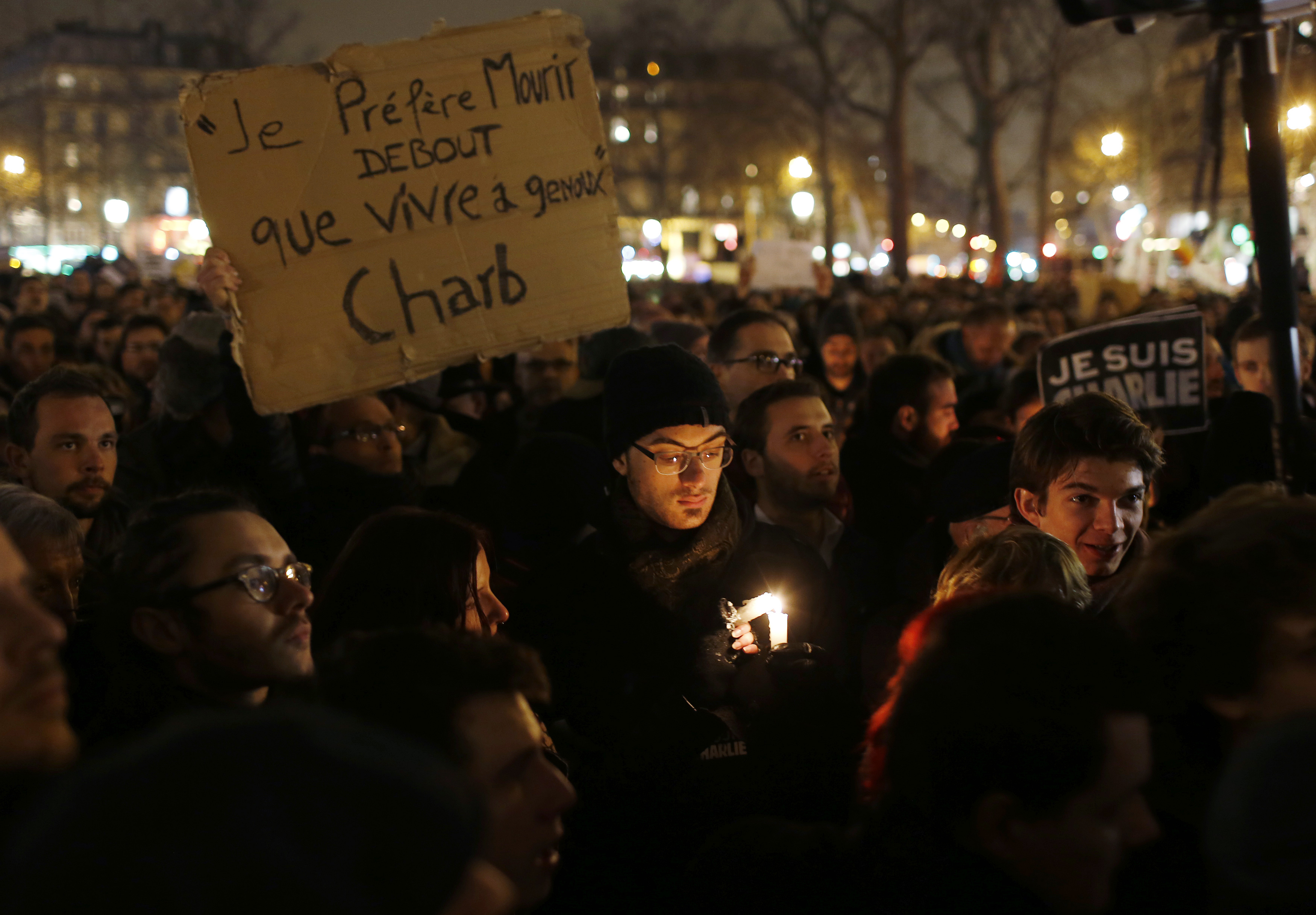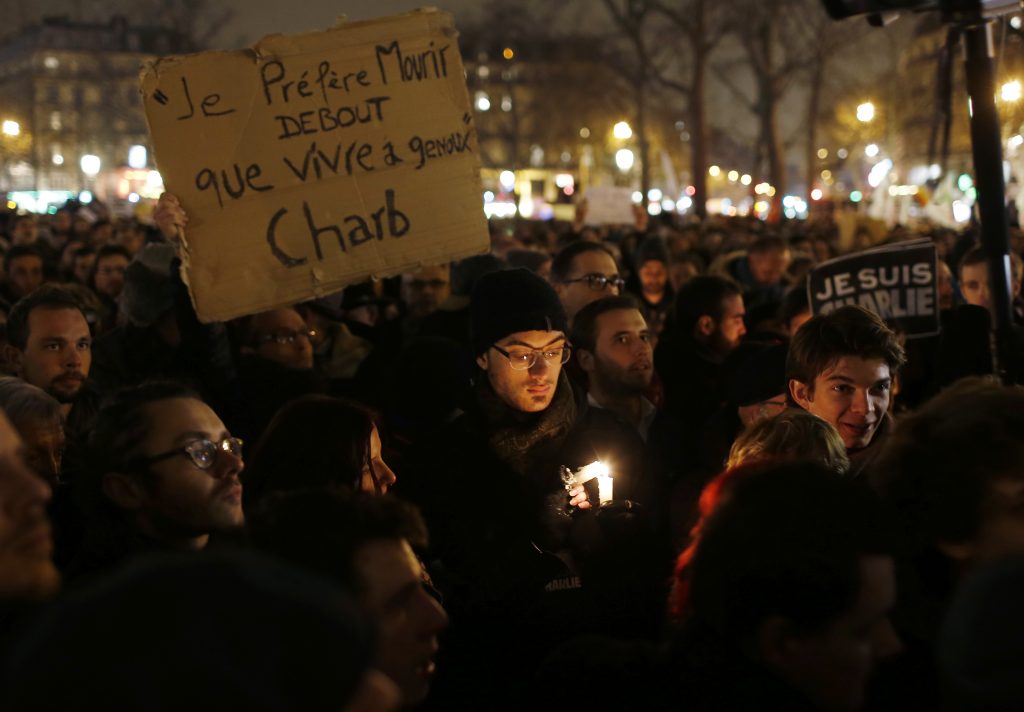
Restrained Popular Reaction Will Reduce Gains for Extremists, Says Nicholas Dungan
A restrained response by France’s political mainstream to yesterday’s killings in Paris—peaceful street vigils and the ringing of church bells—may reduce the risk of an anti-foreigner backlash, says Atlantic Council analyst Nicholas Dungan. That in turn will limit the assault’s impact in strengthening radicals both on the far right and in the Islamist community.
“What I think that any terrorist who is motivated by Islamic extremism would want is that this [assault] will fuel other extremists,” said Dungan, a senior fellow in the Atlantic Council’s Transatlantic Relations Program. “But the reaction of the French people and the French government, which has been one of great dignity and great restraint, will actually make it more difficult in the French context for the National Front [France’s main far-right party] to capitalize on this.”
“This is something that is touching a very strong nerve, but it is not a nerve like for example, 9/11, which provoked a tremendous amount of hatred and backlash,” he added. In the first twenty-four hours after the Paris assault, “the reaction of the French people as well as the reaction of the French government has been one that has been true to their genuine values of humanism and not hatred and not confrontation,” Dungan said in an interview.
Excerpts of Dungan’s interview with New Atlanticist are below.
Q: Is there a link between the increase in the number of terrorist plots and attacks in Europe and the rise of groups like ISIS, which has recruited an unprecedented number of Westerners?
Dungan: It is very difficult for the leadership in Western societies and Western governments, and particularly in France which has the largest Islamic population of any country in Europe – it also, by the way, has the largest Jewish population of any country in Europe – it is very hard to dissociate the acts of what the French president has described as terrorism and the rise of ISIS, which has been clearly much more sophisticated in its use of media, in its recruitment techniques, and so forth. So we are dealing with an asymmetrical threat.
But, at the same time, even though it is very difficult for us to dissociate the two it is also very important not to link them to specific events until we know a great deal more. The mistakes that we can make in terms of political decisions, policy decisions, and in terms of fueling the fire of politics in our Western democracies mean that we should be very disciplined and rigorous about making sure that we don’t associate them any more than the facts justify.
Q: There appears to be a growing movement against Islam across Europe. This week there were anti-Islam protests in Germany. Is the attack in Paris on January 7 likely to strengthen support for critics of Islam in France?
Dungan: I see two things in France in response to this incident. First, you have French people in New York assembling in Union Square. You have French people assembling in public, which is what the French do. They get together in public in the street or a public square and they manifest their solidarity by being together. When the French say liberté, egalité, fraternité what they mean by fraternité is a social solidarity, which the French feel very, very strongly.
These demonstrations of solidarity in France are not demonstrations of hatred or prejudice. They are demonstrations for freedom, for freedom of speech, for freedom of the press, for dignity, and of sympathy with the people who died.
The bells of Notre Dame are going to be chimed at noon (January 8] in sympathy for those who died and those who suffered. This is something that is touching a very strong nerve, but it is not a nerve like, for example, 9/11, which provoked a tremendous amount of hatred and backlash. I don’t see that happening here.
What I think that any terrorist who is motivated by Islamic extremism would want is that this will fuel other extremists. But the reaction of the French people and the French government, which has been one of great dignity and great restraint, will actually make it more difficult in the French context for the National Front to capitalize on this.
If Marine Le Pen [the leader of France’s far-right National Front] tries to come out in the next two weeks and say ‘We ought to grind Muslims under our heels because they have gone and killed our countrymen,’ I think that 99.99 percent of the French will react with horror at a suggestion like that because their reaction has been one of dignity and sympathy and humanity.
Q: Are we seeing a rise of an anti-Islam, anti-immigrant sentiment in Europe?
Dungan: If we want to take — as bizarre as it may seem to try to do so — a positive view of events, the positive view that we can take is the reaction of the French people as well as the reaction of the French government has been one that has been true to their genuine values of humanism and not hatred and not confrontation. One of the big differences, and we see this with Ukraine as well, is as much as it is necessary to be prepared to fight when you have to fight, people in Western Europe do not want to fight just to fight. They are not interested confrontation if the confrontation can be avoided. They have seen over the centuries, and particularly over the last century, how costly that confrontation can be. The dignity and the humanity of the reactions in France today, and the outrage, are all in a sense hopeful signs in terms of what the reaction will be.
Ashish Kumar Sen is an editor at the Atlantic Council.
Image: Parisians rally in shock January 7 following the terrorist attack on journalists and others at the satirical magazine Charlie Hebdo. A mourner’s placard declared, "I prefer to die standing than live on my knees."(Reuters/ Youssef Boudlal)
